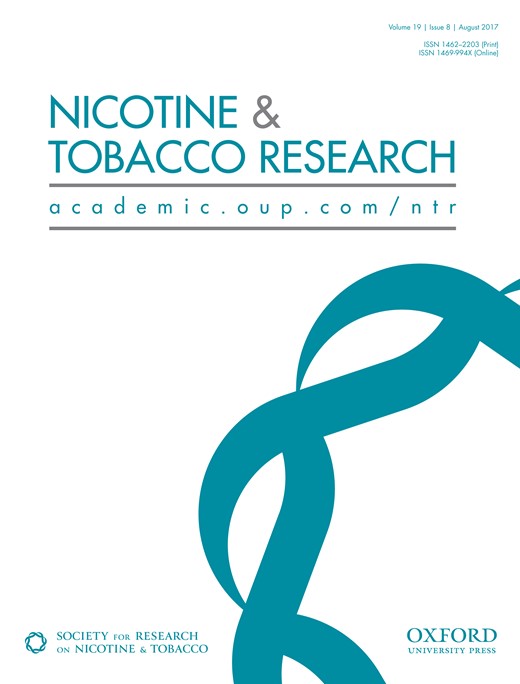-
Views
-
Cite
Cite
Ryan T Hurt, Ivana T Croghan, Darrell R Schroeder, J Taylor Hays, Doo-Sup Choi, Jon O Ebbert, Combination Varenicline and Lorcaserin for Tobacco Dependence Treatment and Weight Gain Prevention in Overweight and Obese Smokers: A Pilot Study, Nicotine & Tobacco Research, Volume 19, Issue 8, August 2017, Pages 994–998, https://doi.org/10.1093/ntr/ntw304
Close - Share Icon Share
Abstract
Post-cessation weight gain (PCWG) is a major barrier to maintaining abstinence, especially in weight-concerned smokers. Varenicline is the most effective medication for smoking cessation but has minimal impact on PCWG. Lorcaserin is an FDA-approved medication for weight management in overweight or obese patients which also provides a noticeable benefit in treating drug dependence. We hypothesized that combining varenicline with lorcaserin may help prevent PCWG. We conducted an open-label, single arm, Phase II clinical pilot study to obtain preliminary data on the safety and effectiveness of combination varenicline and lorcaserin in preventing PCWG in overweight and obese smokers.
Twenty overweight or obese (body mass index 27–40 kg/m2) cigarette smokers were enrolled. The primary outcomes were weight and waist circumference (WC) changes at 12 and 26 weeks in smokers meeting criteria for prolonged smoking abstinence. All participants received open-label varenicline (1 mg twice a day) and lorcaserin (10 mg twice a day) for 12 weeks with follow-up at 26 weeks.
Ten subjects met criteria for prolonged smoking abstinence at 12 weeks (50%) and 6 at 26 weeks (30%). Among those achieving prolonged smoking abstinence at 12 weeks, WC was +0.2 ± 6.0 cm (90% CI; −2.9, +3.4) and weight gain was +1.1 ± 3.9 kg (90% CI; −0.9, +3.1).
Weight gain and WC increases following prolonged smoking abstinence may be reduced among overweight and obese smokers using combination varenicline and lorcaserin. This combinatory treatment warrants further research in the obese and weight-concerned smoking population.
This is the first published prospective pilot study to evaluate lorcaserin for use in reducing PCWG in overweight and obese smokers. When combined with varenicline, lorcaserin minimized PCWG and increases in WC. In addition to the benefit on PCWG reduction, lorcaserin may be a potential new pharmacological treatment for smoking cessation and warrants further larger studies.






Comments